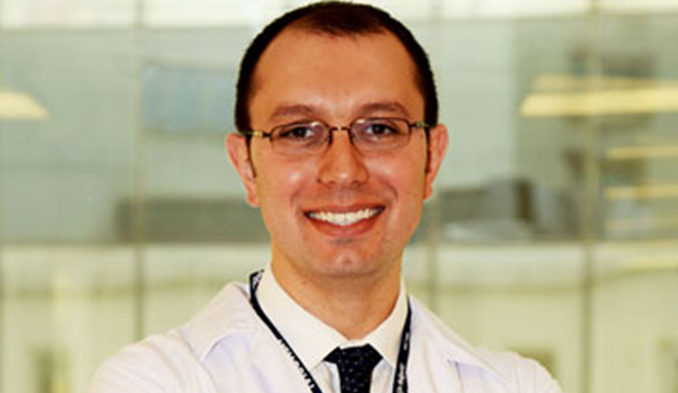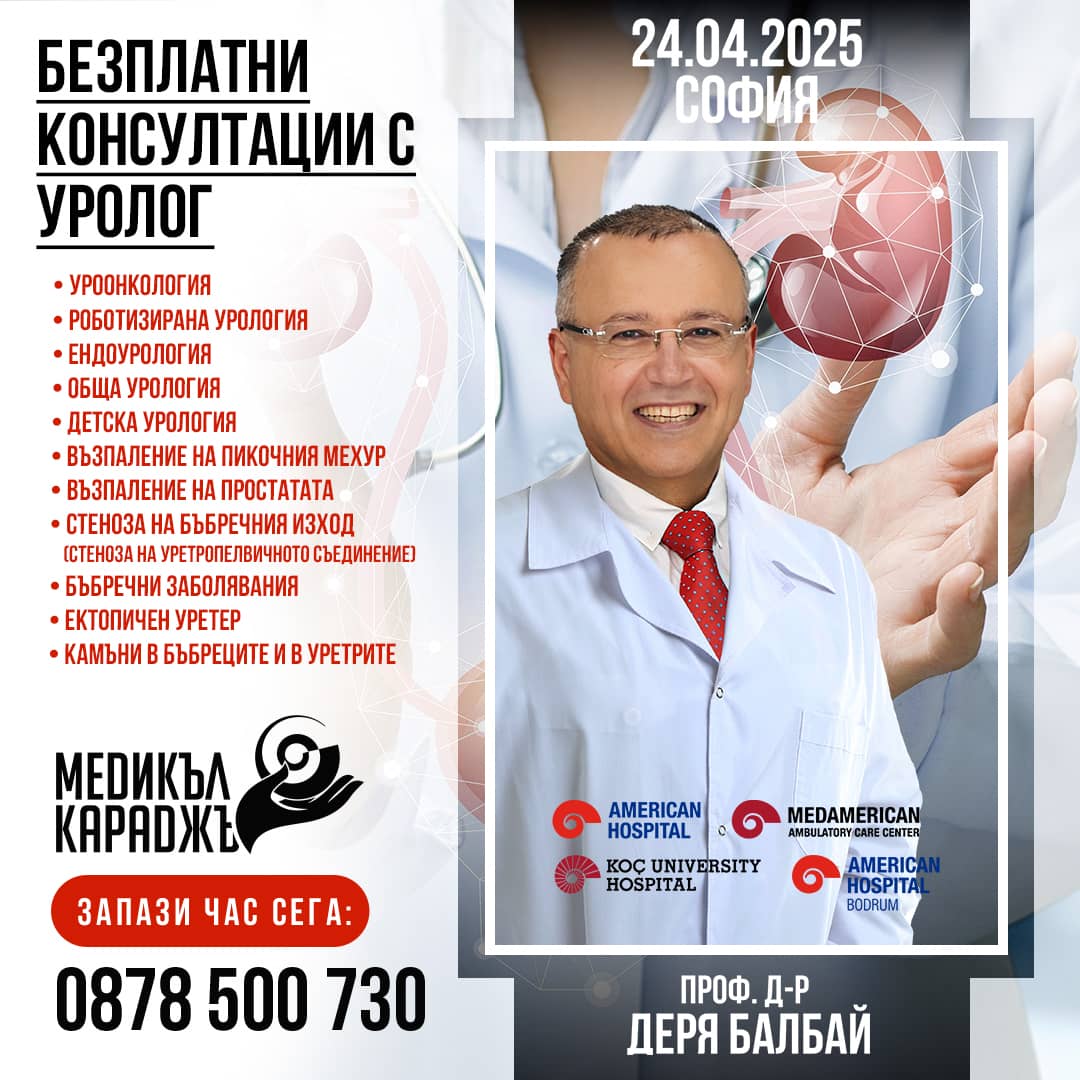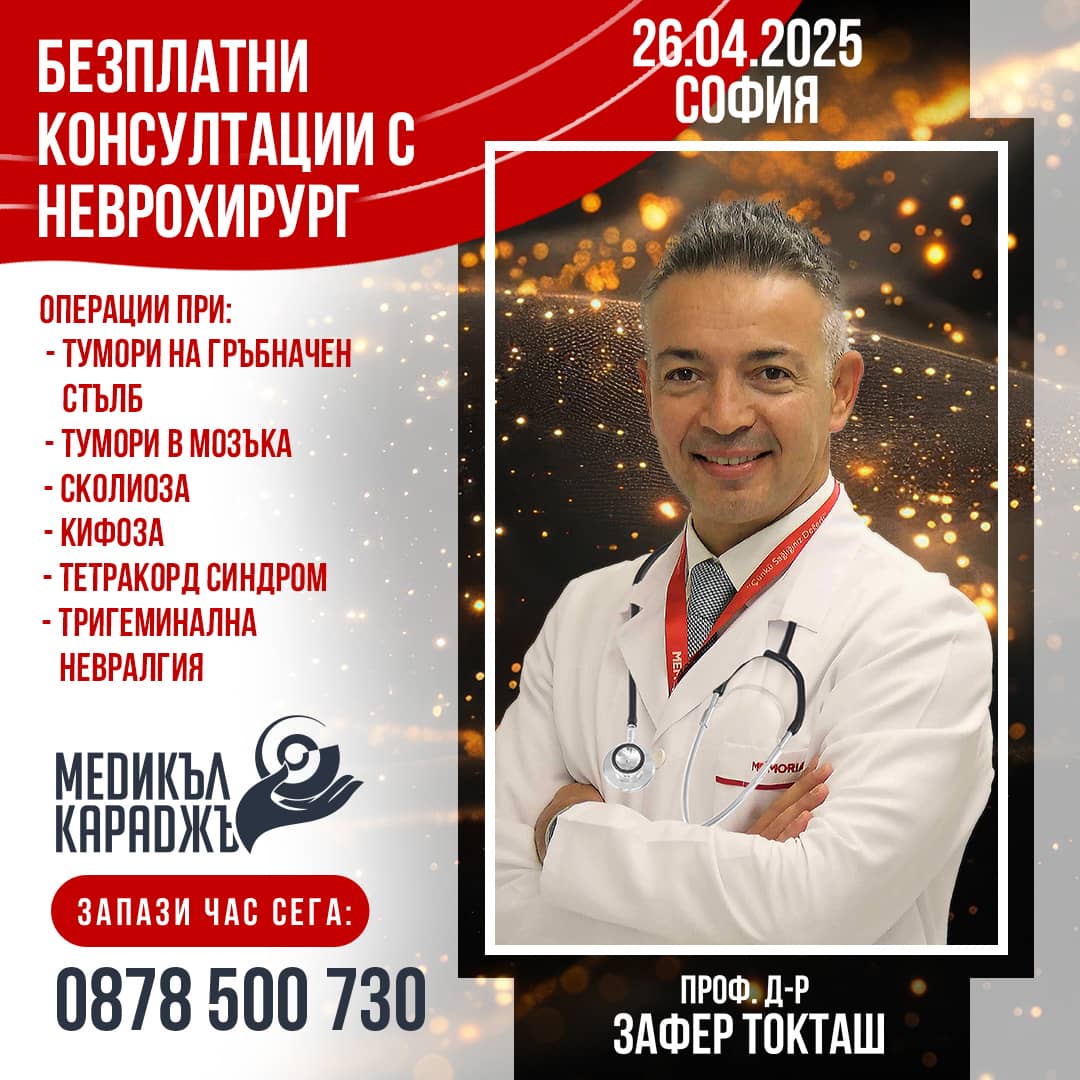A luminary in bone marrow transplants consults for free in Sofia
Prof. Dr. Darda Bayraktar, a specialist in hematology and medical oncology with experience in some of the best hospitals in Turkey and the USA, will consult patients free of charge in Sofia on June 15 and 16. Assoc. Bayraktar is a world authority in the field of bone marrow transplants, including in the absence of a fully compatible donor. He is coming to Bulgaria at the invitation of the Health Information Center "Medical Karaj", as part of their initiative to provide Bulgarian patients with access to the most advanced methods in medicine, partnering with some of the best medical institutions and specialists from around the world.
Assoc. Dr. Darda Bayraktar completed her medical education in Ankara in 2003 and then specialized and worked in the USA until 2015. During his training at the University of Miami, he won an award for a research project related to the development of a novel chemotherapy regimen for high-risk lymphomas. He is also involved in studies related to the treatment of breast and colon cancer. Because of his excellence, he was selected as a fellow of the bone marrow transplant program at MD Anderson Cancer Center in Houston, the largest cancer center with the largest number of bone marrow transplants performed in the world. There, his research focuses on haploidentical transplants, allowing patients who do not have a suitable donor to receive a transplant from their parents or children. He is developing a system that allows doctors to assess patients' need for post-transplant intensive care (PICAT).
In the period 2011 - 2015 Assoc. Darda Bayraktar worked at Mercy Cancer Center in the USA and then returned to Turkey and practiced at Memorial Shishli Hospital in Istanbul. Currently, he treats solid tumors such as colon, bladder, and prostate cancer, as well as hematological cancers such as lymphoma, myeloma, and leukemia. He performs bone marrow transplants - autologous and allogeneic. In the absence of a suitable donor, he performs haploidentical stem cell transplants, for which he has written dozens of scientific articles.
Bone marrow transplantation, in which stem cells are actually transplanted, is used for a number of hematological diseases, such as multiple myeloma, lymphoma, acute and chronic leukemia, and aplastic anemia. When performed with the patient's own cells, it is called an 'autologous transplant', and if the cells are taken from the patient's relatives or unrelated persons, it is called an 'allogeneic transplant'. Allogeneic transplants are more risky but are necessary for patients with leukaemia or relapsed lymphoma where their own cells cannot be used. The most important thing in these cases is to find a suitable donor with HLA compatibility with the patient. With complete compatibility, the risk of the body reacting against the foreign cells is small. But the chance of complete compatibility is about 25% even in a sibling of the patient, and finding a compatible donor in international registries takes an average of three months, which in many cases patients do not have. This is when so-called haploidentical transplantation is applied - with cells from a close relative with whom the patient has partial compatibility.
Until recently, haploidentical transplants were extremely risky, but modern methods allow them to be performed with a success rate close to that of fully compatible unrelated donors. "At MD Anderson, which is the largest bone marrow transplant center in the world, our research has shown that a recently developed method using cyclophosphamide post-transplant leads to better outcomes compared to the previously used T-cell depletion method. Recently, this has been the most widely used method for haploidentical transplants in the world," points out Assoc. Bayraktar.
The bone marrow is transferred to the patient intravenously, and the most difficult part of the entire procedure is following the patient until the cells begin to function in the new location. During this period there is a risk of complications such as anaemia, infections and haemorrhage. Therefore, a good technical infrastructure, an experienced medical team and excellent isolation against germs are essential for the success of a bone marrow transplant. Memorial Hospitals has three bone marrow transplant centers where they treat patients with high success rates from Turkey and all over the world.
Oncology patients from Bulgaria can take the opportunity for a free consultation with Dr. Darda Bayraktar in Sofia on 15 and 16 June 2017. They will be required to provide all medical epithecrises describing the treatment carried out so far, as well as up-to-date examinations in English on the spot. Pre-registration at the office of "Medical Karaj" - at tel. 0879009742.






